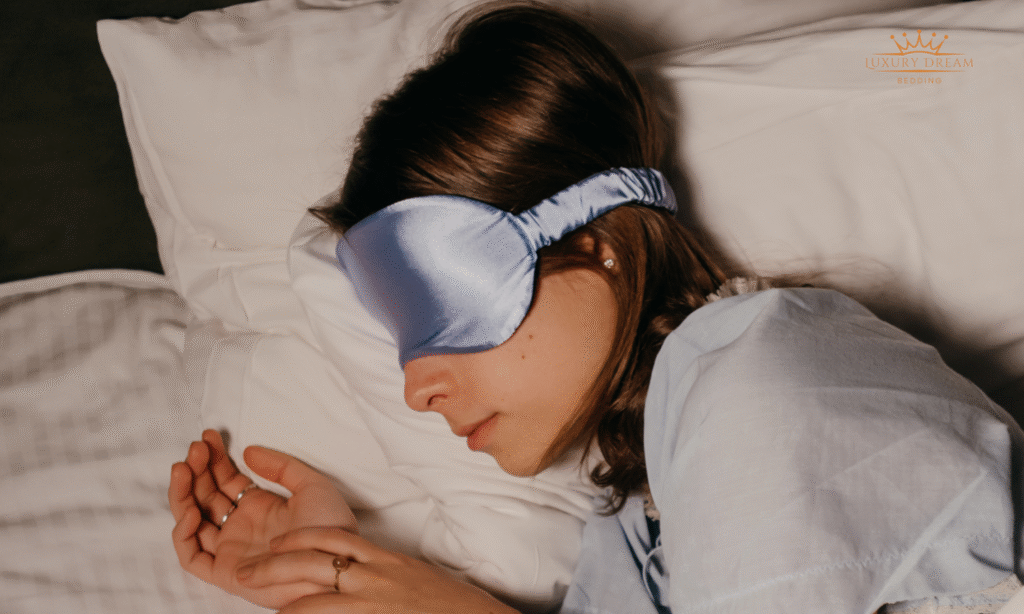Waking up feeling like you never really slept? Struggling with a night of tossing and turning, caught somewhere between sleep and wakefulness? You may be experiencing a condition commonly referred to as being half-asleep—a fragmented, shallow sleep state that prevents your body and mind from getting the rest they need.
This article explores the possible causes of this restless sleep, why you might be trapped in a cycle of dream-filled light sleep, and most importantly—how to overcome it.
I. What Causes the Half-Asleep State?

Feeling half-asleep or experiencing light, broken sleep can stem from a variety of causes. One of the most common is stress. When your mind is overloaded, your body struggles to relax into deep sleep. You may drift in and out of awareness throughout the night without ever reaching truly restorative sleep stages.
Another key factor is poor sleep hygiene. Using smartphones or electronic devices right before bed exposes your eyes to blue light, which suppresses melatonin—the hormone responsible for regulating sleep. As a result, you might experience restless sleep or wake frequently through the night.
In some cases, health conditions such as chronic fatigue, depression, or sleep apnea may be to blame. Even the side effects of certain medications can interfere with your sleep cycle, making it harder to sleep deeply and continuously.
II. How to Overcome the Half-Asleep Feeling
If this light and broken sleep pattern persists, it’s essential to seek medical advice. However, here are some effective, science-backed methods to help you improve your sleep quality naturally:
1. Stick to a consistent sleep schedule
Creating a regular sleep routine is one of the most powerful ways to improve restless sleep. Go to bed and wake up at the same time every day—even on weekends. This helps regulate your circadian rhythm and trains your body to fall asleep more easily and sleep more deeply.

2. Optimize your sleep environment
Your bedroom should be a sanctuary for rest. Keep it cool, dark, and quiet. Use blackout curtains or an eye mask to block out light, and consider earplugs or a white noise machine to mask disruptive sounds. Investing in a supportive mattress and pillow can also ease physical tension and reduce episodes of dream-filled light sleep.
3. Manage stress effectively
Stress is one of the biggest culprits behind poor sleep. Try techniques such as meditation, yoga, journaling, warm baths, or listening to calming music before bed. These practices can help calm your nervous system and transition your body into a state conducive to deep sleep.
4. Avoid electronics before bedtime
Limit screen time at least 30 minutes before bed. The blue light from your phone, laptop, or TV disrupts melatonin production, leading to shallow and restless sleep. Instead, wind down with a book, breathing exercise, or gentle stretching.

5. Practice gentle nighttime exercises
Engaging in light physical activity such as yoga, stretching, or deep breathing before bed can ease physical and mental tension. However, avoid high-intensity workouts within 2–3 hours of bedtime, as they may increase alertness and make it harder to fall asleep.
6. Try sleep-supportive foods and herbal remedies
Certain foods and herbal teas can promote better sleep. Warm honey water helps replenish glycogen in the liver and supports melatonin release. Lotus seed tea contains calming compounds like nuciferine, while cinnamon tea can boost serotonin and melatonin levels.
Peppermint tea may relax the nervous system, while turmeric (rich in tryptophan) aids melatonin production, helping you sleep more deeply.
7. Avoid self-medicating with sleeping pills
If you’re experiencing light sleep or dream-filled rest for extended periods, resist the urge to take sleep medication without medical supervision. Instead, consider natural supplements like blueberries or ginkgo biloba, which enhance brain circulation and promote relaxation without the side effects of synthetic drugs.

Being stuck in a half-asleep state isn’t just frustrating—it can take a toll on your health, focus, and mood. But the good news is, with simple lifestyle changes and consistent routines, you can reclaim deep, restful sleep.
Start by resetting your sleep habits, minimizing distractions, and using natural remedies to support your body’s natural rhythms. And if the problem persists, don’t hesitate to consult a sleep specialist for proper diagnosis and personalized treatment.
